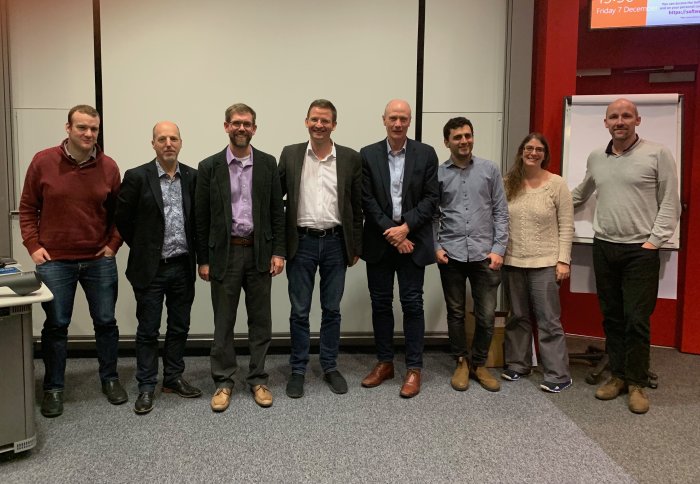Expanded Centre for Synthetic Biology launches at Imperial

The Centre brings together researchers using synthetic biology to solve challenges such as in healthcare, biomaterials and sustainable energy.
Synthetic biology is the application of engineering principles to biology; designing and creating biological components and systems that do not already exist in the natural world.
The new Imperial College Centre for Synthetic Biology, launched this month, marks a significant expansion in the College’s activities. The first Synthetic Biology Research Centre opened at Imperial in 2009, funded by the EPSRC.
Synthetic biology will be a really important area both for Imperial, the country and for broader society in the coming years. Professor Nick Jennings Vice-Provost (Research and Enterprise)
Since then, government investment has grown, with £102m invested through the Synthetic Biology for Growth Programme. This is a reflection of the strategic importance of synthetic biology, which is now worth £220bn to the UK economy.
The expansion of the Centre at Imperial provides a new collective focus for the synthetic biology community at Imperial, which is the largest in the UK with 38 academic groups from seven departments across the Faculties of Engineering, Natural Sciences, and Medicine.
Professor Nick Jennings, Vice-Provost (Research and Enterprise) for Imperial, said: “Synthetic biology will be a really important area both for Imperial, the country and for broader society in the coming years.”
At the launch, several ongoing projects at Imperial were presented. These included:
- Constructing artificial cells, to provide scientists with new insights into how cells work, and to attempt to harness the power of biology to create new classes of smart micromachines.
- Genetically modifying mosquitos to spread infertility among local populations, rendering them incapable of transmitting malaria
- Creating sensors that can monitor the behaviour of cells, warning researchers when things have gone wrong and allowing them to add genes to the organism that help correct the problem.
Co-Director of the Imperial College Centre for Synthetic Biology Dr Geoff Baldwin said: “It is appropriate that after ten years of synthetic biology in the UK, the Centre is being significantly expanded with a new scope to take us forward for the next ten years.
Co-Director of the Imperial College Centre for Synthetic Biology Dr Guy-Bart Stan said: “The new Centre constitutes a prime example of multidisciplinary research across College, and most likely the largest grouping of researchers focusing activities in and around synthetic biology in the UK.”
Article text (excluding photos or graphics) © Imperial College London.
Photos and graphics subject to third party copyright used with permission or © Imperial College London.
Reporter
Hayley Dunning
Communications Division

